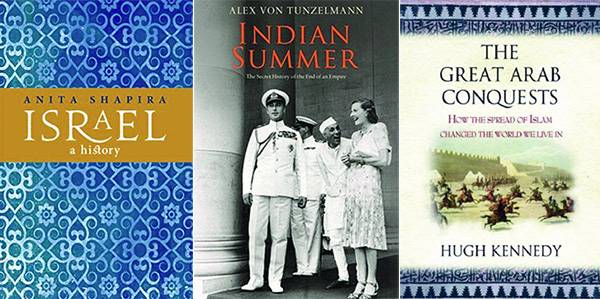
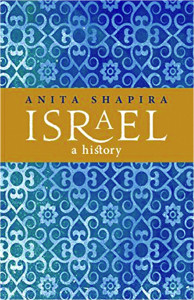
Israel: A History
Anita Shapira
Brandeis (paperback), 2012
PRs 1395
Written by one of Israel’s most notable scholars, this volume provides a breathtaking history of Israel from the origins of the Zionist movement in the late nineteenth century to the present day.
Organized chronologically, the volume explores the emergence of Zionism in Europe against the backdrop of relations among Jews, Arabs, and Turks, and the earliest pioneer settlements in Palestine under Ottoman rule. Weaving together political, social, and cultural developments in Palestine under the British mandate, Shapira creates a tapestry through which to understand the challenges of Israeli nation building, including mass immigration, shifting cultural norms, the politics of war and world diplomacy, and the creation of democratic institutions and a civil society. References to contemporary diaries, memoirs, and literature bring a human dimension to this narrative history of Israel from its declaration of independence in 1948 through successive decades of waging war, negotiating peace, and building a modern state with a vibrant society and culture.
Based on archival sources and the most up-to-date scholarly research, this authoritative history is a must-read for anyone with a passionate interest in Israel. Israel: A History will be the gold standard in the field for years to come.
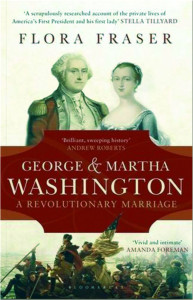
George and Martha Washington: A Revolutionary Marriage
Flora Fraser
Bloomsbury (hardcover), 2015
PRs 1595
The Washingtons’ long union begins in colonial Virginia in 1759, when George Washington woos and weds Martha Dandridge Parke Custis, a pretty, charming, and very rich young widow. The calm early years of their marriage as plantation owners at Mount Vernon and as parents to Martha’s two children, Jacky and Patsy—both of whom present difficult challenges—yield to harsher times. Washington has been prominent among Virginians in opposing British government measures, and at the outbreak of fighting in 1775 he is elected commander-in-chief of the Continental army. The war sees Martha resolutely supporting her husband, sharing in the hardships at Valley Forge and other wretched winter headquarters. Essential to George’s personal well-being, she is known as “Lady Washington”—a redoubtable and vastly admired figure in her own right.
Flora Fraser provides us with a brilliant account of the public Washington and of the war he waged, and gives us, as well, the domestic Washingtons, whether at Mount Vernon before and during the war or in New York and Philadelphia during his presidency. Even in wartime, Martha manages to scour Philadelphia to find a doll for her newest granddaughter and keeps careful control of her Virginia inheritance. George grapples with a formidable enemy, without proper troops and often without basic supplies—his soldiers frequently lack rations, blankets, even shoes—while always fearful for his wife’s welfare and safety, given the constant worry that the British might descend on Mount Vernon. Even so, a true Virginian, he manages to dance for more than three hours with Alexander Hamilton’s pretty young wife at a makeshift ball.
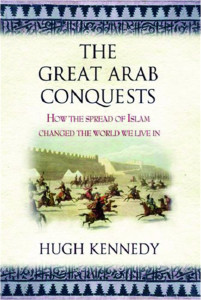
The Great Arab Conquests
Hugh Kennedy
Da Capo (paperback), 2008
PRs 2000
In forthrightly popular style, Kennedy fascinatingly chronicles the expansion of Islam from the death of the Prophet Mohammed in 632 to the beginning of the Abbasid Caliphate in 750 (the latter the subject of Kennedy’s When Baghdad Ruled the Muslim World, 2005). Relating the story, however, requires care since most sources date, as Kennedy cautions, from 150 to 250 years after the conquests they purport to describe. Kennedy’s warnings engage interest as he provides the contexts of late antiquity, which lent advantage to the new religion sweeping out of Arabia. Crucially, Near East populations had been devastated by plague and by a war between Islam’s political enemies: the Byzantine Empire and the Sasanian Empire of Persia. Kennedy’s attention to these factors deepens his interpretations of the Islamic chronicles, which he describes as frustratingly vague on details of battles but strangely attentive to the division of booty. Explaining the élan that propelled Islam so far, so fast, and so permanently, Kennedy vividly introduces the formative establishment of Islam.
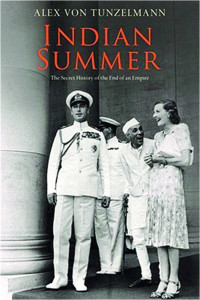
Indian Summer: The Secret History of the End of an Empire
Alex Von Tunzelmann
Pocket Books (paperback), 2008
PRs 1250
The end of the British Raj remains a controversial topic among historians. Could partition have been avoided if British and Indian politicians were more prudent? Could the communal violence that cost up to a million lives have been avoided or at least mitigated? Although Von Tunzelmann touches on these questions, she does not attempt to answer them, but perhaps those answers are beyond the scope of this general history of the closing years of British control. Instead, she provides an interesting look at the key players in this tumultuous period. Despite the title, there are no startling revelations here. But Von Tunzelmann’s portrayals of Nehru, Jinnah, Gandhi, and Louis Mountbatten are often provocative and at odds with more conventional views. Gandhi, for example, is seen as rather rigid, sometimes petty, and maddeningly indecisive. Nehru, the giant of Indian nationalist aspirations, seems more British than the British themselves and distinctly uncomfortable as a leader of a mass movement. This is not a particularly comprehensive account, but for general readers, this work will be very valuable.
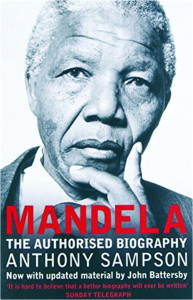
Mandela: The Authorised Biography
Anthony Sampson
Harper Press (paperback), 2011
PRs 1198
Widely considered to be the most important biography of Nelson Mandela, Antony Sampson’s remarkable book has been updated with an afterword by acclaimed South African journalist, John Battersby. Long after his presidency of South Africa, Nelson Mandela remained an inspirational figure to millions - both in his homeland and far beyond. He has been, without doubt, one of the most important figures in global history. His death, on 5 December 2013 at the age of 95, resonated around the world. Mandela’s opposition to apartheid and his 27 year incarceration at the hands of South Africa’s all-white regime are familiar to most. In this utterly compelling book, eminent biographer Anthony Sampson draws on a fifty year-long relationship to reveal the man who rocked a continent - and changed its future. With unprecedented access to the former South African president - the letters he wrote in prison, his unpublished jail autobiography, extensive conversations, and interviews with hundreds of colleagues, friends, and family - Sampson depicts the realities of Mandela’s private and public life, and the tragic tension between them. Updated after Sampson’s death with a new afterword by distinguished South African journalist John Battersby, this is the ultimate biography of one of the twentieth century’s greatest statesmen.

